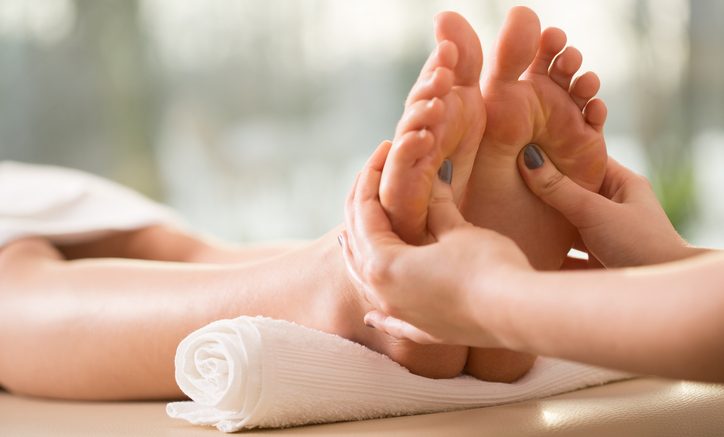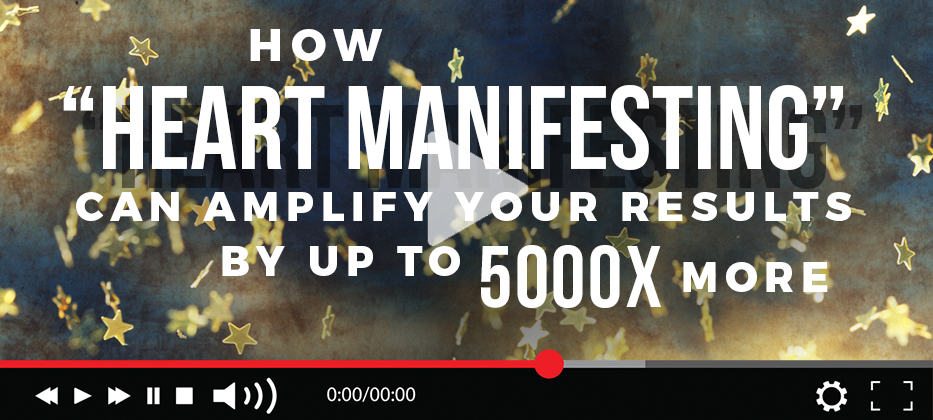Do you want to amplify your manifestation results exponentially? Go watch this video now…
The Secret Behind “Heart Manifesting” (Video)
What Is Reflexology? 7 Benefits Of Reflexology And How It Works
You’ve probably heard of reflexology; perhaps a friend has enthusiastically recommended reflexology, or you’ve seen it discussed in an article about chronic pain or stress.
No matter how you first come across it, you’re likely aware that reflexology is frequently toted as a wonderful treatment for a wide range of health problems.
It is often mentioned alongside other alternative health practices like Reiki, acupuncture, and aromatherapy.
So, if you’ve already tried conventional medical interventions, it’s likely worth looking at what reflexology can offer you as well. Afterall, you may be surprised by its effectiveness.
But what exactly is reflexology? And what is reflexology good for? This short guide will give you the answers you need.
I aim to fully explain the practice of reflexology before moving on to explore some of its most exciting benefits. We’ll look at the impact it has on common health complaints.
Plus, we will examine the evidence in favor of using it to improve mental well-being too.
What Is Reflexology?
In the simplest terms, reflexology is a highly specialized type of foot and hand massage.
Sometimes called “zone therapy”, it involves applying deliberate pressure to specific points in the hands and feet.
This is based on the idea that different areas of these limbs have different relationships to other parts of the body.
Some practitioners focus on the hands and feet. However, it’s also common for reflexology to be conducted on the feet alone.
Since your feet are constantly under pressure, the process is deeply soothing, independent of whether it produces any other positive systemic effects in the body.
How Often Should You Get Reflexology?
That’s partly a matter of personal preference. Many people start out with weekly sessions for a month or two.
Then, they either stop having reflexology or transition to fortnightly or monthly “maintenance sessions” once they’ve already seen positive results.
A trained reflexologist can help you draw up an effective plan that takes your main goals into account.
7 Benefits Of Reflexology
When people ask “what is reflexology massage?”, they often want to know about the concrete health benefits in particular.
There are dozens of purported ways in which reflexology can help to create a happier body and mind. We will focus on the seven most significant and well-supported benefits associated with the treatments.
As we go through the list, we’ll explore how and why reflexology might make a difference in these areas. Plus, hopefully, this will help you understand what to expect.
While reflexology should not be considered an adequate substitute for conventional medical treatments, it can certainly be part of a complementary treatment plan that gets fantastic results.
1. Boosted Energy Levels
Most of us feel depleted and burnt out from time to time.
Whether you have a busy family life, a hectic career, underlying health issues or all three of these challenges, it’s likely that you sometimes wish you could take a magic pill and instantly create more energy.
If this sounds familiar, talk to your reflexologist. Ask them what they can offer you to help replenish your low energy supplies.
While reflexology can’t totally compensate for lack of sleep or the harsh demand of modern life, a study published in the European Journal of General Practice shows that receiving reflexology can boost your metabolic rate and help your body’s energy-creation processes.
In turn, you can feel more resilient, more awake and generally more capable of facing the day.
As a bonus, a faster metabolism can also help you regulate your weight more effectively. Consequently, this can mean you get better results from your exercise regime.
2. Increased Circulation
If you watch a reflexology video demonstration, you’ll often see reflexologists talking about the circulatory system.
This is in large part because some of the most compelling research on reflexology shows that it can increase circulation all over your body, helping your organs to get the nutrients and oxygen they need (and thereby boosting their functionality).
For example, one group of diabetes patients with nerve problems were able to practice self-reflexology to improve the flow of blood to their feet.
In addition, if you have Raynaud’s syndrome (a common condition in which the hands and feet easily become cold and numb), reflexology can help to return blood flow to affected areas more quickly, soothing pain and reducing the risk of injury by restoring normal sensation.
If you learn how to reflexology at home, you can make a habit of doing these exercises as soon as you come in from the cold.
3. Relaxation
Reflexology techniques are intrinsically relaxing. If you’re looking to learn how to do reflexology on yourself, you can practice these techniques any time you feel stressed or upset and need to calm down.
However, nothing beats the feeling of having a trained reflexology expert using their healing hands to drain your stress away!
And the evidence strongly supports the use of reflexology to induce relaxation.
This is a particularly important benefit for patient groups who struggle to get restful sleep, as you may do if you have a chronic pain condition or suffer from racing thoughts.
The results can often be particularly good if reflexology is combined with meditation or with deep breathing exercises, though benefits are also seen without these additions.
Some experts even believe that reflexology helps to readjust the body’s circadian rhythms, helping you to wake up and fall asleep at the right time, making it especially useful if you do shift work or are struggling with jet lag.
4. Reduction In Headaches
One of the most exciting benefits of reflexology is its potential to treat certain types of chronic headaches.
Tension headaches are felt around your temples and your forehead. You might describe them as causing you to feel like you have an invisible hat sitting around your head.
This distinctive discomfort is caused by tense muscles, and reflexology can do a lot to help with this. It helps your entire body to loosen up, including the muscles in your head and neck.
Although most studies on reflexology and pain focus on headaches, there’s good reason to believe that a reflexology session could also help with any muscle tension.
For example, in your back, legs or shoulders. One major benefit of using treatments like reflexology to address pain is that it minimizes the need to use pain-killing medications.
This can place a huge strain on your liver or kidneys.
5. Cancer Treatment
Reflexology, for example, Chinese reflexology massage, has long been used as a complementary treatment for cancer patients.
Of course, no one is suggesting that your reflexologist can actively cure cancer or put it into remission.
However, scientists have studied the effects of foot reflexology on anxiety and pain in patients with malignancies of the lung and breast.
They discovered that reflexology treatments can reduce the side effects caused by the most common cancer treatments.
You will often read about reductions in nausea and vomiting, and (similarly) about cancer patients noting they have fewer stomach cramps or bowel difficulties.
Just as importantly, cancer patients frequently experience better, more restful sleep after seeing a reflexologist.
When you’re conserving energy in this way it can obviously help your body to fight the invading disease.
Further, for those who have limited mobility or are even bed-bound due to the severity of their cancer, the circulation-boosting aspects of reflexology can make a huge difference.
6. Elimination Of Toxins
Reflexology body massage is also said to help remove toxins from your body.
More specifically, some promising research on the benefits of reflexology demonstrates a link with better bladder function and a reduction in chronic urinary tract problems.
This potentially points towards reflexology having a positive influence on the body’s ability to process and excrete toxic material.
This, in turn, could reduce your risk of developing a whole host of health problems linked to the bladder and kidneys.
Any trained reflexologist can tell you more about this when you visit for a treatment. They can address your specific concerns about toxins (as well as how they relate to your individual lifestyle choices).
For example, you might be looking to detoxify your system after making a decision to stop smoking or drinking. A reflexology practitioner may have some effective suggestions to help restore your body to its former health.
7. Speed Healing
Finally, the same research that taught us about reflexology and circulation also points to an improvement in healing that can result from this increase in circulation.
This is handy for everything from minor cuts to more significant injuries (such as sprains, muscle aches, and burns).
Whilst you should go to your regular doctor for advice on healing first, your reflexologist can give you extra tools that empower you to take charge of your own healing.
Once again, the key here is to tell your reflexology practitioner exactly what you’re looking for.
Ideally, they will show you at least some basic exercises that you can do at home between sessions. If you have a partner, this can also make healing an intimate and close activity.
Reflexology can allow your partner to do something concrete and relaxing to help you. Otherwise, they may feel frustrated by their inability to take away your pain.


